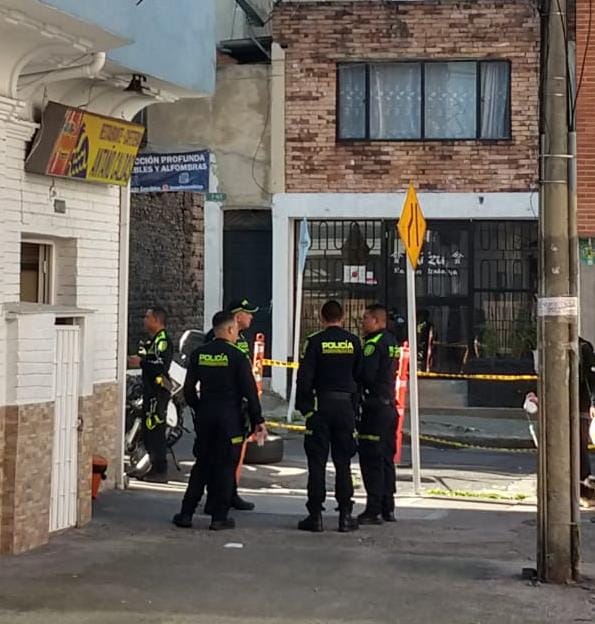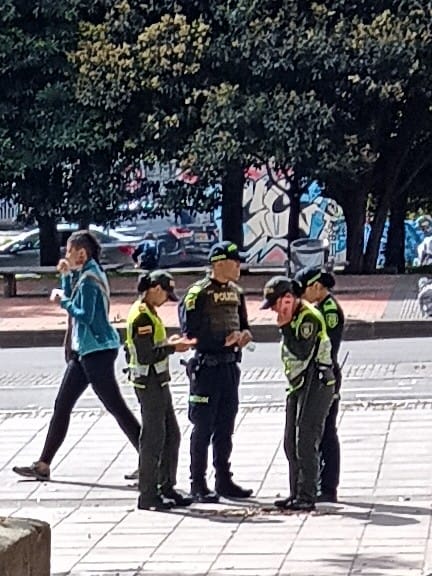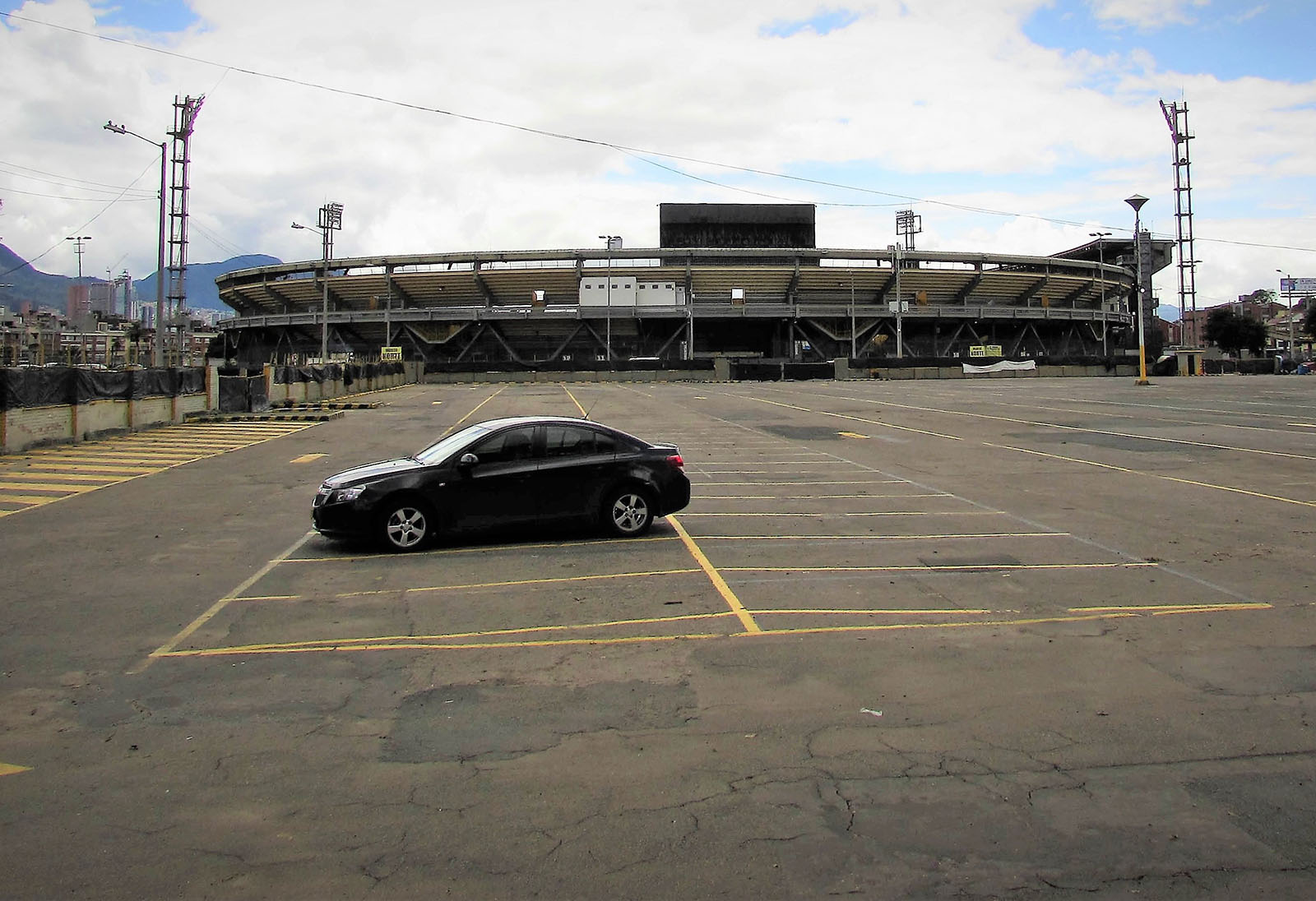We’re happy to see more police on the streets, but we’d also like to see crime go down. When a city loses respect for the police, chaos can ensue.

I wrote last week about Claudia López and her new police initiative. There are certainly more bobbies on the beat, at least to my eye, so it’s a cautious thumbs-up for now. However, having more police on the street is one thing – their effectiveness quite another. With so few laws enforced in the capital, is it any wonder that so many complain of a crimewave?
Crime in Bogotá is a perennial concern and it’s fair to say that it sometimes feels as though many people in this fine city somewhat overstate the crime level. There’s an element of that, to be sure, but the numbers themselves are sobering indeed. According to recent data from the Secretaría Distrital de Seguridad, Convivencia y Justicia, there were a thousand murders last year and over 12,000 robberies a month. In short, there’s no shortage of crime.
At times the police are spurred into action, and sometimes they move quickly. Note the sterling work inside Colombia and overseas to arrest John Poulus, prime suspect in the Valentina Trespalacios case. Feminist groups have pointed out, though, that the long arm of the law is rarely as quick with less high-profile cases. If it can be done for one suspect, what stops it being done for others?
Neither is this restricted to dramatic cases – even the most basic of laws are rarely enforced. For example, it’s common to see police in my local pocket park. However, that park is still filled with dog shit and benighted by litter. Adults use and damage the children’s playground, others use the foliage for their own piss party. Dogs are rarely leashed and cars ignore road signs, both of which cause accidents. All of this in front of groups of police who wilfully ignore their own police code – even when asked to intervene.

You don’t have to look far to find a Colombian complaining about the inefficiency of the police, and many would say the only difference between them and The Simpsons’ Wiggum is that they tend to be munching on empanadas and not doughnuts. You’ve no doubt seen it yourself, a group of officers at a station as naughtiness unfolds around them. There’s little control from on high, it would seem, and plenty of corruption in the force.
Police code made little difference
Back in 2016 we were concerned about that new police code, thinking that it represented a great loss of liberty and handed unwarranted powers to the police. Worse still, many of the rules were seemingly draconian and the fines enormous – up to a whole minimum salary for relatively minor offences. Today, that outrage seems hopelessly naïve – the code is basically ignored completely.
At heart, this comes down to respect. A police force that cannot command respect is one that will be ignored. I’m constantly amazed at the laissez faire attitude of many coppers here, as I’m used to a constabulary that will front up and be proactive when rules are broken. It doesn’t have to be a big deal. It can be enough to just let someone know that they’re in the wrong and need to change course. After all, once you know you can take the piss out of coppers, why not go on the rob?
Colombian lawmakers love to create new laws and do so at a rate of knots. Few of these laws are enforced in any sensible way, though, so why bother making them? There’s an argument that the police can’t enforce laws as the courts are overwhelmed and the jails full anyway. That’s understandable, but those are problems that can and should be sorted out, not naturally occurring phenomena outside the remit of humanity.
The stalking nightmares behind this, of course, are vigilantism and populism. As we enter a local election cycle, what more effective platform to stand on than ‘tough on crime’? It’s worked for many – the ‘world’s most popular dictator’ is not far away in El Salvador and he enjoys sky-high approval ratings.
Closer to home, it’s a card that Uribe himself played to great effect, leading to horrible consequences such as the falsos positivos. Uribista former defence minister Diego Molano has a shockingly casual attitude to the deaths of his enemies and he threw his hat into the mayoral candidate ring this week. Let’s hope we can get on top of crime in a measured, reasonable manner rather than sliding towards chaos.





